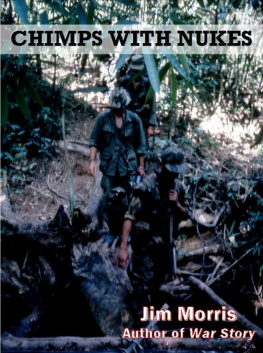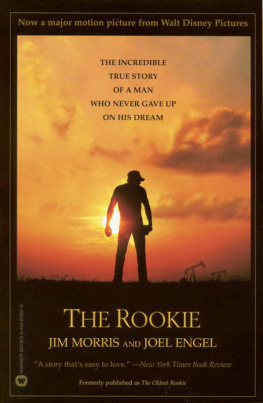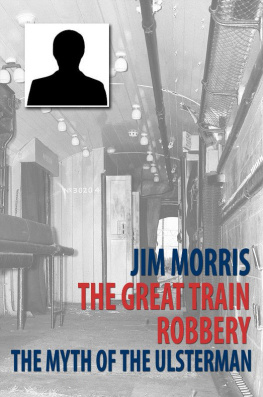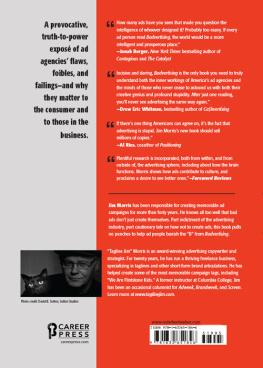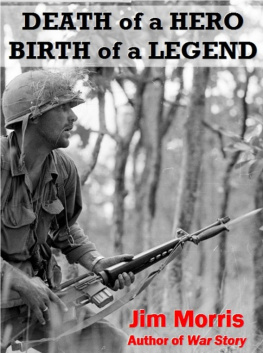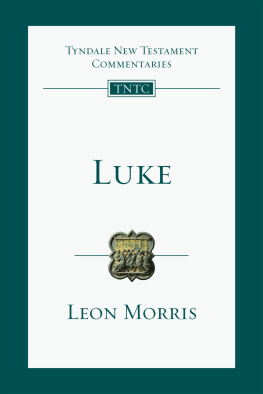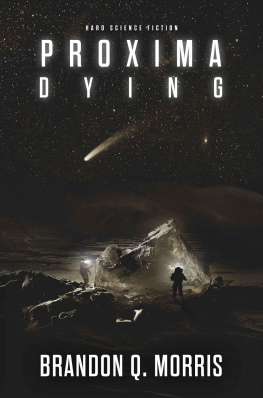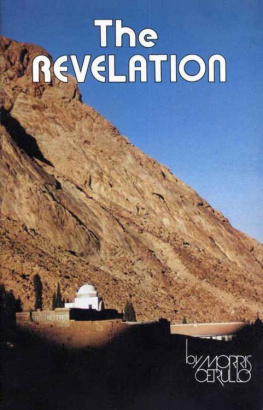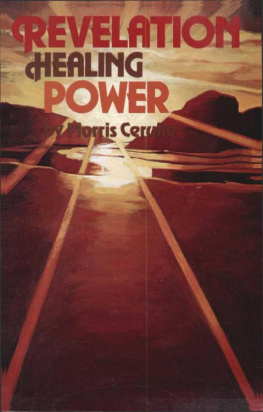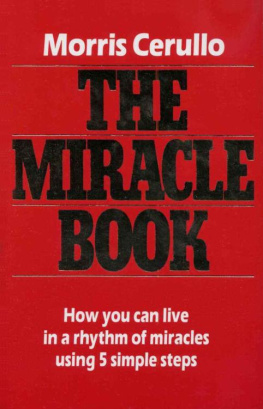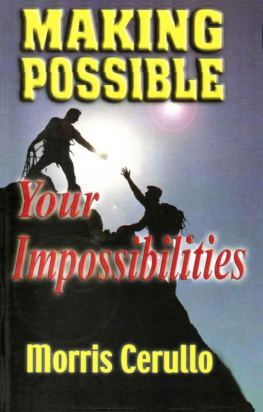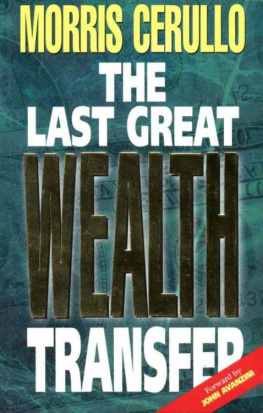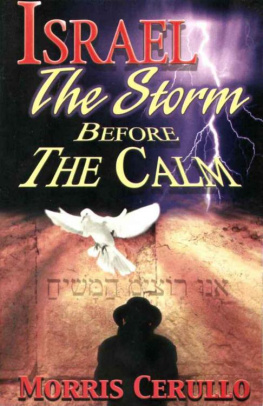Chimps with Nukes
Jim Morris
Antenna Books
Brooklyn, NY

Copyright by Jim Morris
Originally published inthe San Diego Reader , May 13, 2004.
Antenna Books e-edition, October 2014
Cover photo by Larry Dring
Cover by Doug Grad

www.antennabooks.com
In Jared Diamondsbook, The ThirdChimpanzee , he points out that we shareabout 98 percent of our DNA with chimpanzees, which is not muchgreater than the difference between chimps and bonobo pygmy chimps.He also postulates that human behavior is merely an elaboration ofbasic primate behavior. Bands of chimps hold a territory and theyoung males instinctively patrol its boundaries, keeping watch forleopards and the young males of adjacent bands who sneak in andsteal bananas. When that happens they beat them up or kill them ifthey can.
Ive found that a great deal of puzzlinghuman behavior becomes perfectly clear if one thinks of our speciesas chimps with nukes.
All of our statecraft and military scienceis an elaboration on the theme of stealing and protecting bananas.We just do these things more intelligently than chimps, which iswhere the real danger lies. A behavior pattern that results in adead chimp may make sense. One which results in a dead planet doesnot.
There is probably no one of average orbetter intelligence who does not believe that war, the way we wageit now, is insane. Yet we keep doing it, blaming each other,captive of our primate genes.
This article is not an argument for oragainst war. Winston Churchill was right that slavery is worse thanwar. Dishonor is worse than war. Lots of things are worse than war.What its an argument for is leaders who know this first hand.
Harry Truman fought in France in WWI.Kennedy, Johnson, Nixon, all took the oath and wore the uniform.Even Reagan did that, though he only made training films inHollywood as a captain in the Signal Corps.
FDR didnt serve, of course. He waswheelchair bound. But his son Elliott served as second in commandof a Marine Raider Battalion. There is no more hairy assignmentthan that. From a geopolitical standpoint it makes no sense to havethe son of the head of state subject to capture by the enemy. YoungRoosevelt undoubtedly wanted to be in the war, but if his fatherallowed it, this must have been, at least partially, to make anegalitarian statement to the country.
Vietnam was not a popular war. Getting outof it replaced baseball as the national pastime in the earlyseventies. Though his father had served in World War II George Bushskated in the Texas Air Guard. Cheney, Wolfowitz and Pearle haddeferments. Only Rumsfeld was a Navy pilot, prior to Vietnam.
These are not bad men. But if you haventseen your best friends face turn to red goo before your eyes, orwatched a child die because you made a simple mistake throwingsteel around at supersonic speed after three days without sleep,well, if you havent done that, then, by definition, when it comesto war, you dont know what youre talking about.
In March of 1964 I was the Senior Advisorof a patrol of four Americans and a platoon of Jarai Montagnardtribesmen. We were out hunting for the entire population of a Jaraivillage which the Viet Cong had kidnapped to use as slave labor inthe jungle. It was a small patrol, put together quickly. Frankly weknew that the chances of finding the village were almost nil, butwe had to make a good faith effort or risk losing support from theother villages.
We had mounted the patrol so quickly thatthere was no interpreter available. I was advising the Montagnardcommander with hand and arm signals and about a hundred and fiftywords of survival French I had learned on Okinawa. Ksor Yul, theplatoon leader, also remembered some French from his service in theIndo-china War. Some of them were the same words.
Oddly, this worked well enough. We couldntdiscuss philosophy, but we could patrol.
About noon of the second day we crossed theLi Piao River, Ayunapa in Jarai, and moved parallel to it, hiddenin the bush. Most of the Central Highlands was dense jungle, butthis was open and park like. Then my left flank guy signaled thathe had spotted something. It was three Bahnar tribesmen, young boysworking in a rice field by the river. I wanted to ask them if theyhad seen our VC and their group of villagers. We moved around themin the jungle, surrounding them on three sides, with the river onthe fourth. The river was three feet deep and more than a hundredacross. No one but a fool would try to escape across it under suchcircumstances. A fool or a kid.
The boys broke for theriver. I charged after them, into the water wearing forty pounds ofgear and clothes that soaked and dragged me back. It was likerunning in a nightmare. My Americans fired warning shots. We hadtaught our Jarai a lot, but not about warning shots. They had beenat war with the Bahnar, on and off, for about 900 years. They shotto kill. I screamed, No gpow! No gpow!, gpow being Jarai for gun. Probablythe only thing that saved two of them was that my troops had toshoot wide to avoid hitting me. But they hit one of them and bloodran down his back as he ran. The other two scampered over the bankand into the jungle on the other side, but this kid wavered andfell by the river.
He was bleeding from a head wound. Webandaged it, but that didnt stop the bleeding. I didnt have anAmerican medic, but we pulled a can of blood expander out of ourMontagnard medics pack. He had filled it with aspirin.
Then a sniper opened up from across theriver. I took a squad, moved back in the jungle again, crossed theriver out of sight around a bend, and moved through the jungletoward the sniper. None of my squad would take the point, so I did.I knew the sniper, if we found him, would have the first shot. Ihave great confidence in my marksmanship. If he missed me on thefirst round Id kill him before he got off a second. Thats a bigif, and I was more scared than Ive ever been.
But the sniper had bugged out.
I crossed the river for the fourth time.When I reached the bank I stood and watched the boy die. And Iwatched him die in my dreams every night for the next ten years. Iwill probably see him die on the day I do, and I will still grievefor him. I bear responsibility for his death and I never knew hisname.
In war every digit of every casualty figurehas a story like that attached to it, and every one is a tragedyfor a family and for the comrades of the dead. We have objectivisedlanguage in the military. Dead babies are collateral damage. Deadteenagers, last Mays bright and hopeful high school grads, arefriendly or enemy casualties. Theres a reason for thelanguage. As long as you can think like that you can keep fighting.But in the dark of the night for all the long years that followtheyre just dead kids, and the tears that youve managed topostpone come at strange and inappropriate times.
But our leaders will not have these troubleswith their dreams. Somehow this country is now run by people whothink theyre too good to fight for it.
This was dramaticallybrought home to me a few years ago when I was an editor in New Yorkpublishing. I learned that the editor-in-chief of our literaryimprint had actually known James Jones, the author of From Here to Eternity , abook Ive read nine times. So I talked to her about Jones, and inthe course of the conversation she mentioned that I was the onlyVietnam veteran she had ever met.
My God that was stunning. This woman was inthe upper reaches of New York society. Her husband tried casesbefore the Supreme Court. Shed had Caroline Kennedy Schlossbergand her husband to dinner the previous week. But she had never,either socially or professionally, knowingly met a Vietnamveteran.
Next page
